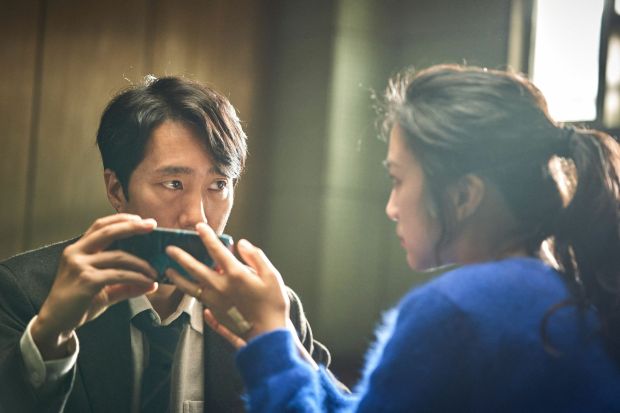I recently watched Park Chan-wook’s tremendous new film Decision to Leave. Styled “a romantic thriller”, it deals with a detective who falls for a suspect in the murder investigation he is leading.
Hae-Jun, the insomniac detective, investigates the death of a former immigration officer in an apparent mountaineering accident. Suspicion falls on the officer’s Chinese wife, Seo-Rae, whom the cops think isn’t showing enough grief. As Seo-Rae and Hae-Jun become entangled beyond the scope of the investigation, the mystery deepens: who is snaring whom?
A 1960s song which recurs throughout Decision to Leave, “Mist” by Jung Hoon Hee, highlights some of the movie’s themes.
As director Park explains on the MUBI podcast:
The beautiful lyrics just hit my heart straight away, especially the part where it says, “Open your eyes in the mist.”
[…T]hroughout the song, you get this impression that the one that you love is leaving you, and you see them in silhouette, obscured in this deep fog; that’s the dominating image in the song.
And then, towards the end, you hear this lyric: “Open your eyes in the mist.” And that is a command to you, to open your eyes and take a straight look at that person.
So the command is, even though it’s misty, things are ambiguous, you have to make an effort to see clearly. Now, what is this song commanding you to take a look at straightforwardly? I think you can fill in the blank. It could be the person you love, or your own emotions, or just reality in general.
That was really the inspiration [for Decision to Leave]. It conjured the image of a detective, someone who always tries to take a clear look at his situation. And that’s when I decided to put in the scenes where the detective uses artificial tears. He always uses them to kind of clear his eyes, whenever there’s a decisive moment that he really wants to take a straightforward look at.
For so many of us in this era, we too find ourselves peering through the fog and mist of the so-called “TUNA conditions”, characterised by turbulence, unpredictable uncertainty, novelty, and ambiguity. No matter how hard we try to resolve these conditions, we cannot be fully sure of what is going on or what will happen next.
When I heard this interview with Park Chan-wook, I was intrigued by the story about the pop song which inspired the movie, but I was also startled by the term “artificial tears”. I’d never heard this phrase used to describe eye drops before. I loved it.
It made me think how, in TUNA times, we can look at the world around us, considering the uncertainties with the power to reshape our immediate environment, and create future scenarios to help us think about how those uncertainties might play out in times to come.
Those future scenarios are designed to challenge our assumptions – not to be dystopian or utopian necessarily, but to go beyond our already-existing expectations, hopes, and fears, so that we see from outside of our old frame of reference and, taking the vantage point of an imagined future, see our own here-and-now more clearly.
